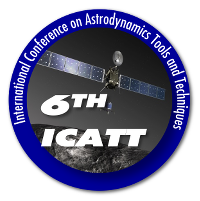Speaker
Mr
Alessandro Rossi
(IFAC-CNR)
Description
The ReDSHIFT (Revolutionary Design of Spacecraft through Holistic Integration of Future Technologies) project has been approved by the European Community in the framework of the H2020 Protec 2015 call, focused on passive means to reduce the impact of Space Debris by prevention, mitigation and protection.
ReDSHIFT will address barriers to compliance for spacecraft manufacturers and operators presented currently and in the future by requirements and technologies for de-orbiting and disposal of space objects. In ReDSHIFT these goals will be achieved through a holistic approach that considers, from the outset, opposing and challenging constraints for the safety of humans on ground, when these objects re-enter the atmosphere, designed for demise, and for their survivability in the harsh space environment while on orbit.
Ensuring robustness into the future, ReDSHIFT will take advantage of disruptive opportunities offered by 3D printing to develop highly innovative, low-cost spacecraft solutions, exploiting synergies with electric propulsion, atmospheric and solar radiation pressure drag. Inherent to these solutions will be structures to enhance the spacecraft protection, by fracture along intended breakup planes, and re-entry demise characteristics. These structures will be subjected to functional tests as well as specific hypervelocity impact tests and material demise wind tunnel tests to demonstrate the capabilities of the 3D printed structures. Modern celestial mechanics and astrodynamics tools will be exploited to find "de-orbiting highways", (i.e., fast trajectories to de-orbit) able to meet de-orbit and disposal needs, coupled with the above-mentioned technical solutions.
At the same time, novel and complex technical, economic and legal issues of adapting the technologies to different vehicles, and implementing them widely across low Earth orbit will be tackled through the development of a hierarchical, web-based tool aimed at a variety of space actors. This will provide a complete debris mitigation analysis of a mission, using existing debris evolution models and lessons learned from theoretical and experimental work. It will output safe, scalable and cost-effective satellite and mission designs in response to operational constraints.
Through its activities, ReDSHIFT will recommend new space debris mitigation guidelines taking into account novel spacecraft designs, materials, manufacturing and mission solutions. In the talk, the technical description of the project will be given, along with the first progresses made within the study.
| Applicant type | First author |
|---|
Primary author
Mr
Alessandro Rossi
(IFAC-CNR)
Co-authors
Mr
Camilla Colombo
(University of Southampton)
c/o IFAC-CNR The ReDSHIFT Consortium
(The ReDSHIFT Consortium, c/o IFAC-CNR,)

